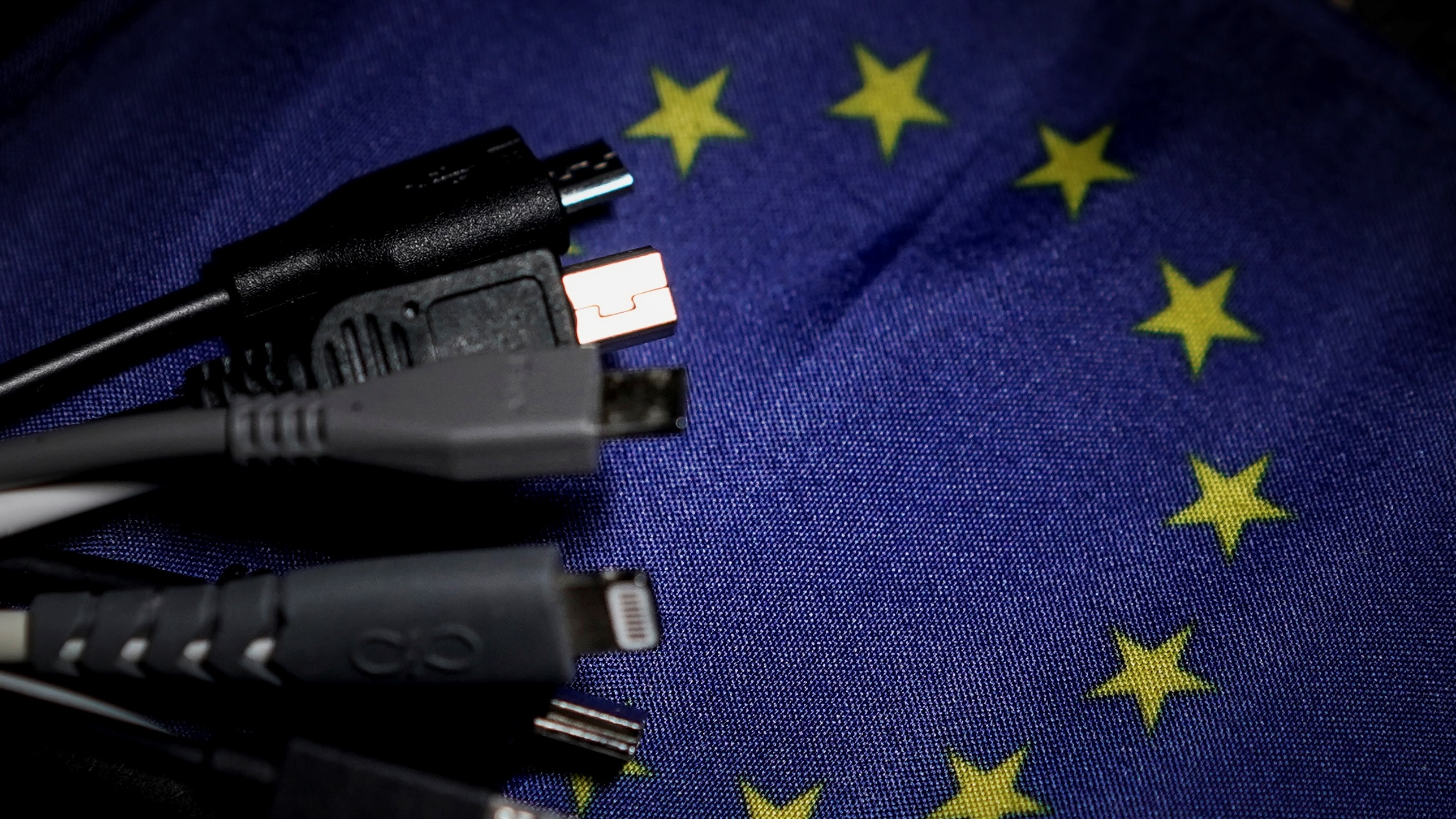The arguments for and against universal chargers
European Commission pushing to establish USB-C as standard for all phones

A free daily email with the biggest news stories of the day – and the best features from TheWeek.com
You are now subscribed
Your newsletter sign-up was successful
The European Commission is under fire from tech giant Apple after unveiling plans to make USB-C connectors the standard charging port for all phones and small electronic devices sold across the EU.
The bloc’s executive body “believes a standard cable for all devices will cut back on electronic waste”, reported France 24. But Apple and other critics argue that “a one-size fits all charger would slow innovation and create more pollution”, the news site continues.
The new rules could “affect the entire global smartphone market” if approved by the European Parliament and member states of the EU, which is home to more than 450 million people including “some of the world's richest consumers”.
The Week
Escape your echo chamber. Get the facts behind the news, plus analysis from multiple perspectives.

Sign up for The Week's Free Newsletters
From our morning news briefing to a weekly Good News Newsletter, get the best of The Week delivered directly to your inbox.
From our morning news briefing to a weekly Good News Newsletter, get the best of The Week delivered directly to your inbox.
Reducing e-waste
Under the EU plan, USB-C chargers will become the standard for devices including mobile phones, tablets, cameras, portable speakers and hand-held game consoles.
The rules will not apply to earphones, smartwatches and fitness trackers, however, for “technical reasons linked to size and use conditions”, the BBC reported.
Proponents believe the new legislation - first proposed by the EU in 2009 - will “make a meaningful dent in the global e-waste mountain by reducing a portion generated by the consumer electronics sector”, said TechCrunch.
A free daily email with the biggest news stories of the day – and the best features from TheWeek.com
The commission has estimated that unused chargers binned by consumers “represent some 11,000 tonnes of e-waste annually”, the site added.
In a bid to cut that waste, the EU is also proposing that phones and chargers be sold separately, “so that people do not end up with a host of chargers that they do not need”, explained The Independent.
In addition, the rules will require that “fast charging technology is harmonised so that companies don’t falsely limit charging speeds”, said the paper. And the firms would have to ensure “better information for customers about their devices when they buy them, such as details on how much power it uses and whether it supports fast charging”.
The number of different mobile phone chargers on the market has already been “whittled down” from 30 to three since 2009, when the commission “facilitated a voluntary agreement by the industry”, reported Forbes. The newly unveiled rules represent the “final step” towards adopting a single, universal charger.
New mobile phones are now powered via either a USB-C connector, a USB micro-B or Apple’s custom-made Lightning port.
Ben Wood, an analyst at CCS Insight, told the BBC that mandating the use of only USB-C charging ports would “be a victory for common sense in the eyes of consumers”.
"Although Apple has made a strong argument for keeping its Lightning connector, given the one billion active iPhone users, some of its products including Mac and iPad now support USB-C,” he said. “Hopefully, it will eventually become a non-issue if Apple keeps adding USB-C to more devices.”
Stifling innovation?
The proposals put the European Commission on a collision course with Apple, which largely refused to abide by the 2009 voluntary agreement with the electronic device industry.
An Apple spokesperson argued last year that forcing the company to adopt a universal charger would disrupt “hundreds of millions of active devices and accessories... creating an unprecedented volume of electronic waste and greatly inconveniencing users”, as Sky News reported at the time.
As the EU now pushes to enact the proposed rules into national law, Apple this week warned that “strict regulation mandating just one type of connector stifles innovation rather than encouraging it”, in turn harming consumers worldwide.
This warning was echoed by Maria Chaplia of the Consumer Choice Center, who urged the EU to embrace “technology neutrality” rather than interfere with consumer choices. In a statement, Chaplia argued that “conformity is the greatest enemy of progress” and that the switch to a universal charger “would inflict additional costs on digital companies during the transition period”.
“In the end, it will be the consumer who will foot the bill,” she added.
But the European commissioner for the internal market, Thierry Breton, has dismissed the claims that innovation would be harmed.
“What are we offering? More freedom, fewer costs,” he told a news conference last week. “Every time we try to put a proposal, such companies start to say, ‘It will be against innovation.’
“It’s not at all against innovation. It’s not against anyone. It’s for European consumers.”